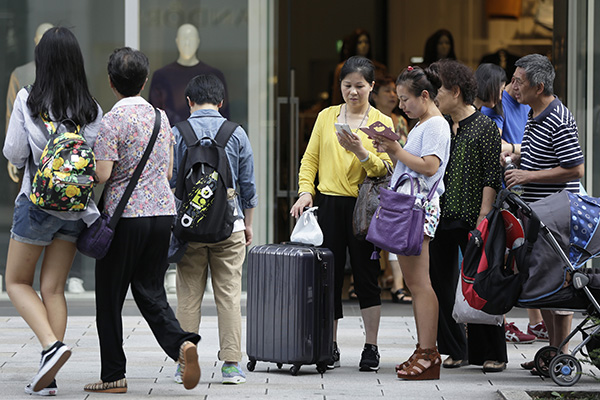Consumption tax prompts overseas buying
(China Daily) Updated: 2016-03-10 07:50
 |
|
Chinese tourists visit Tokyo's Ginza district for shopping in August. Japan is the second-most popular overseas destination. [Photo provided to China Daily] |
ACCORDING TO the Ministry of Commerce, Chinese consumption overseas grew by 27.8 percent each year on average between 2005 and 2015. The enthusiasm for shopping overseas will remain high unless there is a decrease in consumption tax, said the Shanghai-based thepaper.cn on Wednesday:
Chinese consumers still have to pay a lot more for certain imported goods at home than they do in other countries, such as Japan, due to the relatively high consumption tax.
For example, high-end watches priced over 10,000 yuan ($1,535), are normally subject to a 20 percent consumption tax. That means Chinese mainland buyers are willing to travel to Hong Kong, a world-renowned tax-free harbor, to buy a 30,000-yuan watch, as it can save them around 6,000 yuan.
Some, who are unable to travel abroad, even use a proxy buyer overseas in order to take advantage of the cheaper prices in other countries.
Levying a consumption tax on certain goods is indeed necessary to curb potential over-consumption. But the high tax rate is unlikely to guarantee decent revenue since the taxation system is already out-dated, if not obsolete, given the fact that more Chinese residents are financially capable of traveling overseas to shop.











